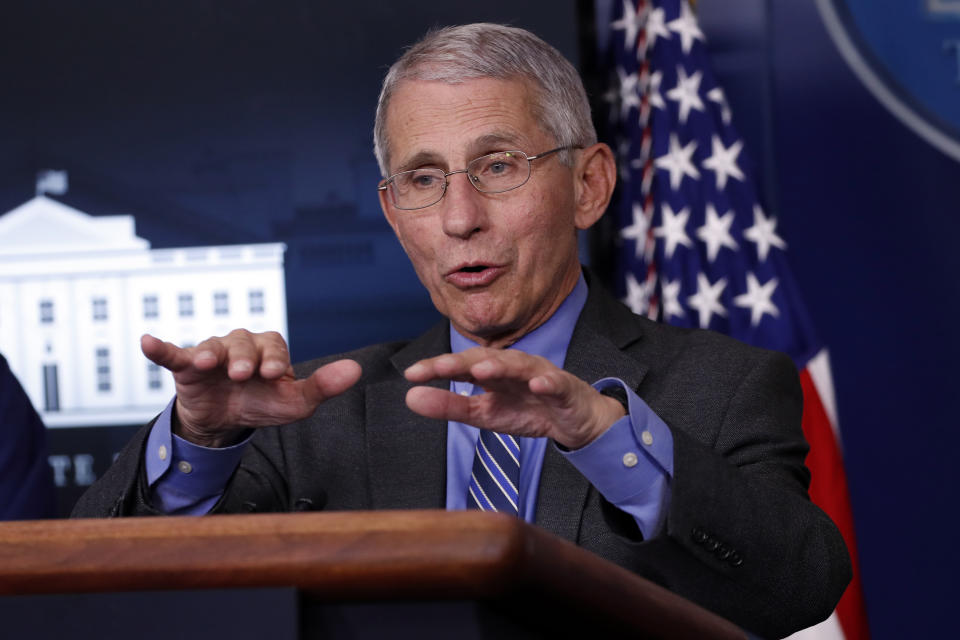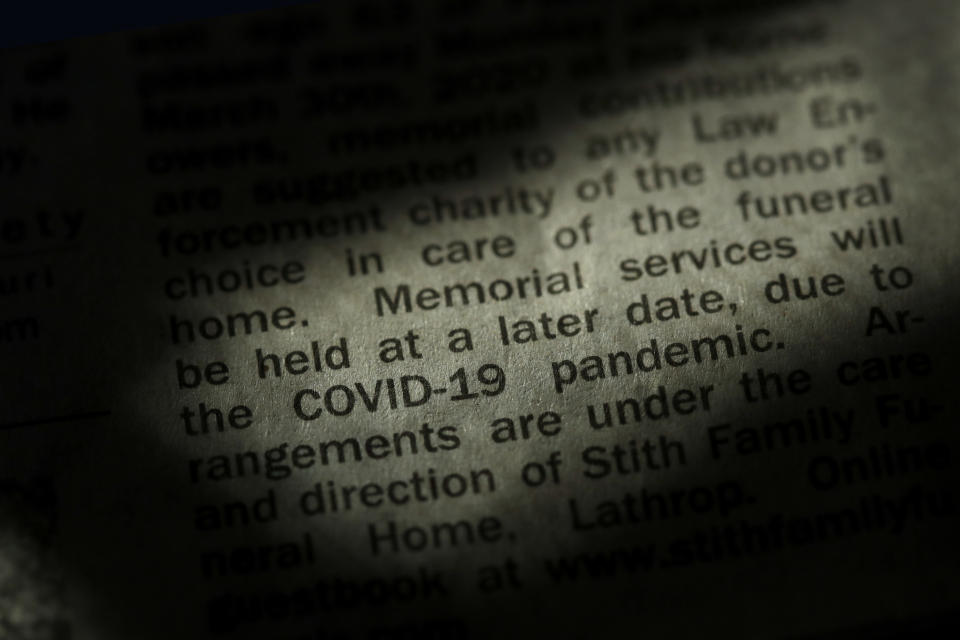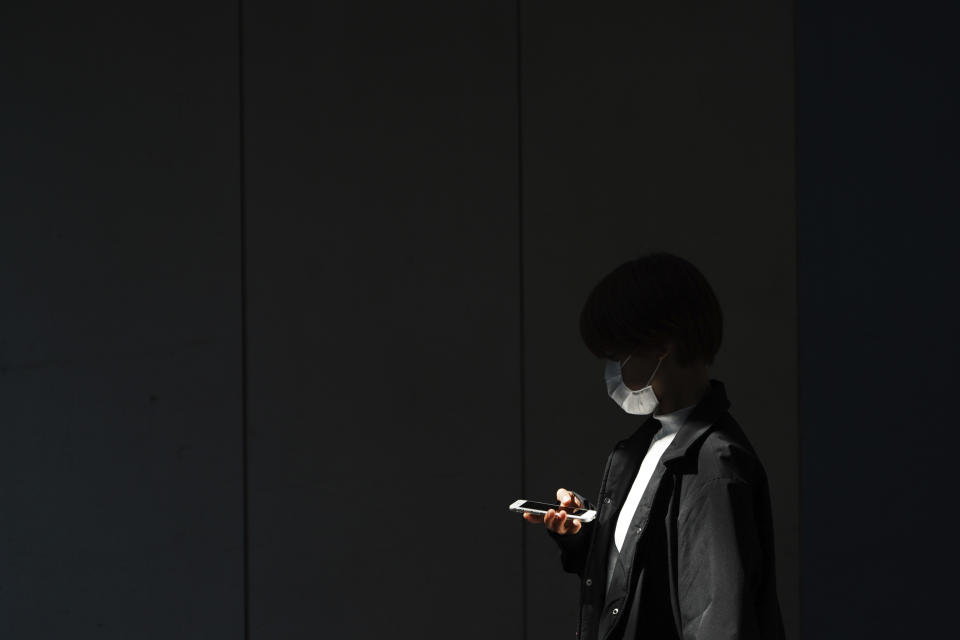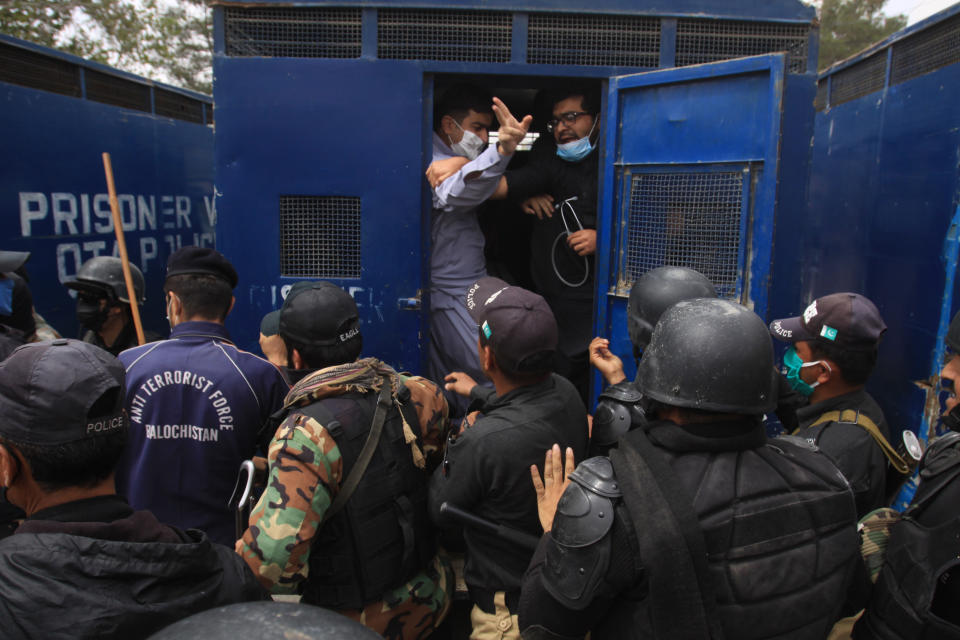What you need to know today about the virus outbreak
British Prime Minister Boris Johnson was moved to the intensive care unit of a London hospital after his coronavirus symptoms worsened Monday. In New York, there are faint glimmers of hope as deaths from the new coronavirus appear to be leveling off.
New York City remains the epicenter of the pandemic in the U.S., and New Orleans and Detroit still face worrying days ahead. Infectious disease specialist Dr. Anthony Fauci expressed careful optimism that new cases may be starting to slow down.
Here are some of AP’s top stories Monday on the world’s coronavirus pandemic. Follow APNews.com/VirusOutbreak for updates through the day and APNews.com/UnderstandingtheOutbreak for stories explaining some of its complexities.
WHAT’S HAPPENING TODAY:
— President Donald Trump said at an afternoon news briefing that he’d called New York Gov. Andrew Cuomo earlier Monday to let him know that the Navy hospital ship USNS Comfort can now be used for COVID-19 patients from New York and New Jersey.
— Coronavirus patients around the world are rushing to join studies of an experimental drug that showed promise against some similar viruses in the past. Interest in the drug remdesivir has been so great that the U.S. National Institutes of Health is boosting the size of its study.
— Investors grabbed hold of a few glimmers of hope Monday that the coronavirus pandemic could be slowing and sent stocks surging in a worldwide rally, capped by a 7% leap for the U.S. market. The encouraging signs were enough to launch the S&P 500 to its best day in nearly two weeks.
— The first national data on COVID-19 in U.S. children suggest that while the illness usually isn’t severe in kids, some do get sick enough to require hospital treatment. The Centers for Disease Control and Prevention report shows fever, cough and shortness of breath were the most common symptoms in kids, but they occurred less often than in adults.
— Hugs, visits and holding hands are being added to the lengthy, sorrowful list of losses from the coronavirus pandemic. Just when many people feel they need it the most, the comfort of physical closeness is being denied.
___
Trump is repeating his misleading suggestion that COVID-19 patients should try using hydroxychloroquine, even though the federal government has not approved the anti-malaria drug as a treatment. Trump’s own health experts say more studies are needed to know whether it’s safe and effective to use.
___
Have tips for the AP Fact Check team? Contact FactCheck@ap.org
___
WHAT YOU NEED TO KNOW:
For most people, the new coronavirus causes mild or moderate symptoms, such as fever and cough that clear up in two to three weeks. For some, especially older adults and people with existing health problems, it can cause more severe illness, including pneumonia and death. The vast majority of people recover.
Here are the symptoms of the virus compared with the common flu.
One of the best ways to prevent spread of the virus is washing your hands with soap and water. The U.S. Centers for Disease Control and Prevention recommends first washing with warm or cold water and then lathering soap for 20 seconds to get it on the backs of hands, between fingers and under fingernails before rinsing off.
You should wash your phone, too. Here’s how.
TRACKING THE VIRUS: Drill down and zoom in at the individual county level, and you can access numbers that will show you the situation where you are, and where loved ones or people you’re worried about live.
___
ONE NUMBER:
— 94%: A new poll from The Associated Press-NORC Center for Public Affairs Research found that 94% of Americans say they are staying away from large groups, up from 68% in mid-March.
___
— AP PHOTOS: A week of images from the coronavirus pandemic.
— DANCING ALONE: A senior center keeps clients up and moving with recorded exercise classes.
___
Follow AP coverage of the virus outbreak at https://apnews.com/VirusOutbreak and https://apnews.com/UnderstandingtheOutbreak








